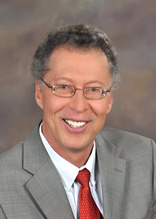The truest evidence a state will leave for history is the rule of law under which its people lived at the time. Today some governments have not credibly accepted the need for environmental stewardship as a part of governance. Such a government opposes sober consideration of environmental stewardship and instead promotes economic progress as if the two governing issues must be universally incompatible. The absence of a balanced environmental stewardship by the state is the evidence I submit in this opinion piece. The actual policies and positions of the state on natural resource management is the material evidence upon which the future will judge South Dakota. I will here discuss current experiences as well as ‘new’ proposed bills before the 2020 legislature. These things will look weak and ill-considered by those reviewing the state’s history in 50 or 100 years.
In 2015, 2016, 2017 and 2018 I wrote several different analysis, in editorials and opinion pieces, advocating for financial assurance from permit applicants in order to satisfy the need for clean-up and plugging of closed projects. The point of my diverse written recommendations applied to mining operations, wind farms, oil and gas exploratory and operating permits as well as other natural resource operations requiring government authorization. My arguments were presented in numerous opinion pieces over those years. The pieces were published in various papers and websites throughout South Dakota, and importantly were not found in so-called advocacy or biased publications. The purpose of the pieces was to warn as well as advise government agencies and the legislature of the significance of proper planning and vigilant oversite for licensed and permitted projects. Some call this planning and oversight stewardship. I wrote about abandoned projects, abandoned wells, orphaned wells, projects in bankruptcy and projects underfunded and at risk. In a 2017 piece I discussed examples of businesses shutting down and not cleaning up after themselves. South Dakota like most states requires financial assurance terms for oil well permits, for mining operations, for sand and gravel permits, for wind farms. In my pieces I also reviewed specific regional examples of permits which imposed inadequate financial requirements for the decommissioning or closing of permitted projects. To restate my principle argument – decommissioning of a government-permitted project is the most significant long-term aspect to a government’s permitting authority. Little, really nothing, has changed since the publication of the articles. Now, I am not personally offended by those who ignore my advice; this is not unusual in my line of work. But no man is pleased to have his good advice so handsomely neglected as has been the subject and recommendation of my articles. How has the advice been neglected? Let us look at current practices of the state as well as proposed legislation before the South Dakota legislature.
The first example. Spyglass, an out-of-state energy company, abandoned 40 natural-gas wells in Harding County over the last several years. The state belatedly sued the company because of its failure to clean up the abandoned wells. The company denied liability. These abandoned gas wells, some of them leaking, have been around for a long time. I personally viewed one of them in 2014. Why has not the operator cleaned up the mess? The state DENR says that, “The problem all along has been that the company didn’t have the money to do so.” The state apparently did not properly oversee the financial assurance submitted by the company and, according to the Rapid City Journal, the state of South Dakota will be left holding the bag on the costs of closing up the wells. The paper reported, “Someone associated with [Spyglass] later cashed out $20,000 from the bonds without state government’s knowledge, leaving the state with only $10,000 to apply toward the estimated cost of nearly $900,000 to plug the 40 orphaned wells.” The original amount of bond money placed on the wells was inadequate in the first place – and if the monies were mismanaged as suggested – this compounds the state’s problem. A settlement consent agreement was entered into between the state and Spyglass but the agreement did not seem to remedy the situation. In the current session of the legislature a bill is pending to specially fund the DENR with earmarked state monies so that it might, itself, clean up orphaned wells. I have in the past been successful in my dealings and communications with the South Dakota DENR. The DENR has been accessible and willing to discuss public matters as well as my client’s issues in good faith. Yet on the proposed new legislation I recently contacted DENR twice by email indicating I would like to discuss the legislation. They did not favor me with a conversation. Instead the DENR emailed me that ‘the legislation speaks for itself.’ This is not open government.
Here are the takeaways for my first example: 1. inadequate financial assurance amounts were required at the outset, 2. there was an apparent failure to vigilantly oversee the operator’s deposited monies, and 3. we have a financial bailout by the state to plug wells at taxpayer’s expense because of a private company’s botched enterprise.
The second example. I have devised a new law of physics. It applies to government activity only and is otherwise an anomaly within the laws of physics: Every action taken by government is always a reaction- never an initiated action. In the current session the legislature proposes to increase the bond amount to $50,000 per well. This is a discretionary amount, not a mandatory amount. The proposed amount is a figure that the Board of Minerals may impose. Or the Board may impose a higher amount by its own authority. This would be an increase over current law. The proposal is nevertheless discretionary. The new legislation also allows the board to require a supplemental plugging and performance bond in the amount of $20,000 or such a mount as will guarantee the cost of reclamation. Again this is a discretionary bond. The Board “may require, or may delegate.” The solution to orphaned wells is not difficult to understand. When companies get a permit to drill they should pay a mandatory minimum bond that covers the cost of plugging and reclaiming the well. If the company plugs and reclaims the well itself they get their bond money back. If the company does not plug and reclaim the well for whatever reason, as we have seen there are several reasons, the state will have adequate money on hand to do the work. Between 1997 and 2014 it cost the State of Wyoming $11 million in total to plug orphaned wells, and only $3 million was covered by bonds. The number of abandoned wells in North Dakota grew by 10% in 2018 and 2019 over prior years. How did the South Dakota legislature come up with its new bond amounts? Has the state and its experts looked at the state’s experience with the Wasta SD well and the 40 orphaned Spyglass wells? I have seen no public state analysis on these matters. While of course no two projects and no two wells are the same, does good stewardship suggest that the lesser protection for the state is the better? North Dakota State Mineral Resources Director Lynn Helms very recently estimated that an abandoned well costs $150,000 to plug and reclaim.
Here are the takeaways from my second example: 1. an increase in bond amount is good. But the proposed legislation is not a mandatory increased amount. It is discretionary. That’s a cop out. If you want to address the problem you address the problem, 2. the state has still not addressed the proper financial amount for financial assurances by a developer. The Wasta abandoned well case is a South Dakota financial tragedy. I respectfully refer the reader to media articles on the abandoned Wasta well. The official stated remedial costs to the state could be $2 million if the Wasta project were ever to be plugged. That is way more than the bond filed with DENR. Further, the Spyglass problem of 40 orphaned Wells is a recent development. The state proposes to address Spyglass by budgeting about three-quarters of a million dollars’ worth of state funds. State funds are to pay for something a private business should be responsible for from the get-go. Thoughtful rules of the road at the initial stages of any project will help address future problems of possible project abandonment, closure and decommissioning. This would be good stewardship.
David Ganje of Ganje Law Offices practices in the area of natural resources, environmental and commercial law.





